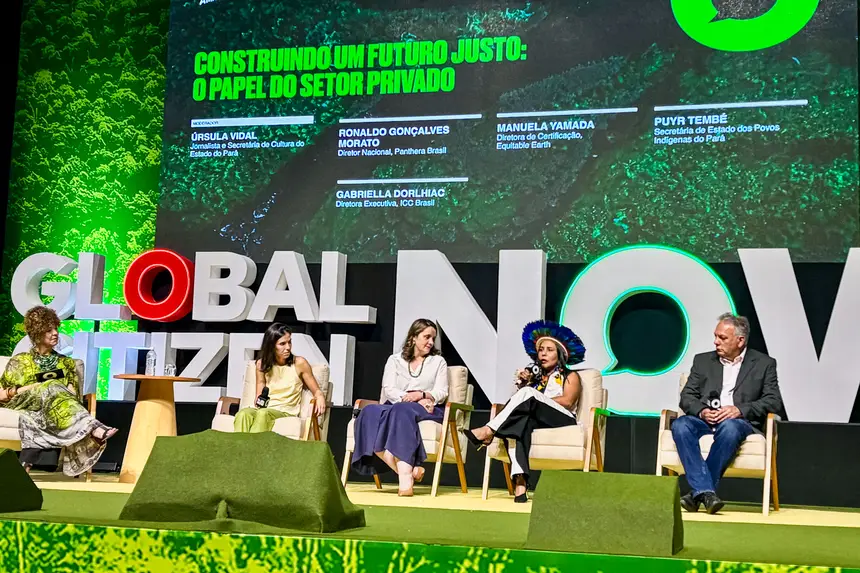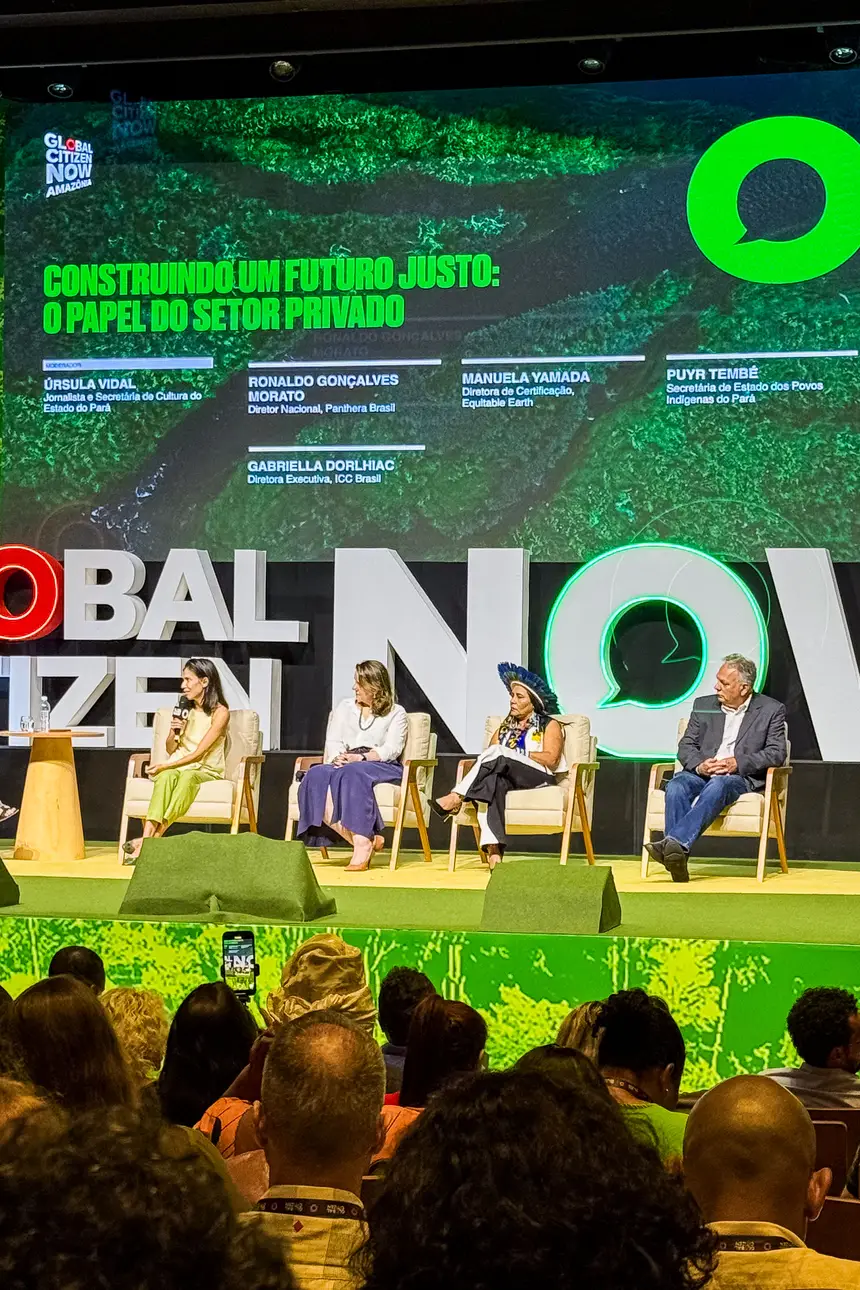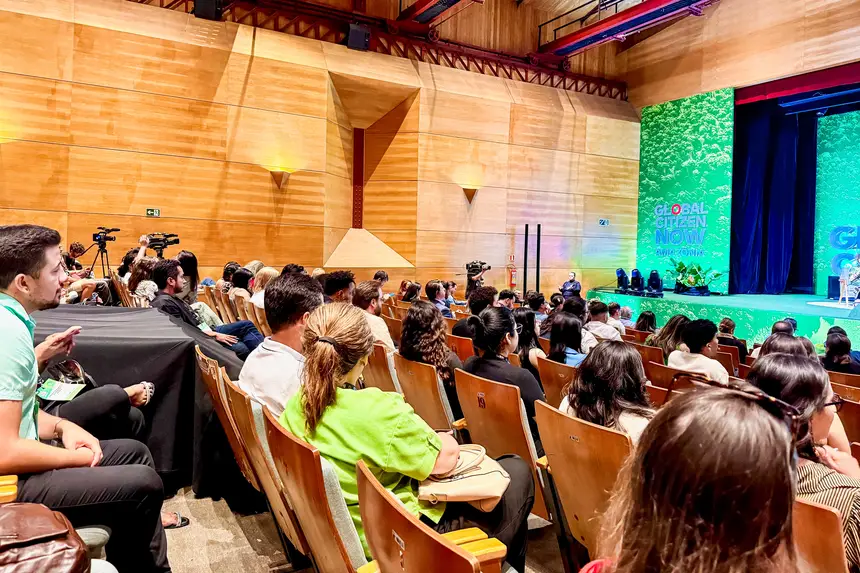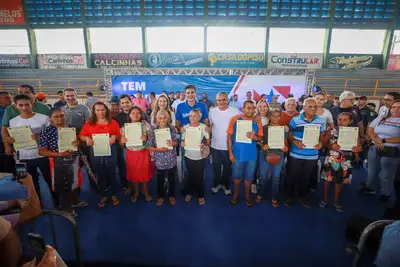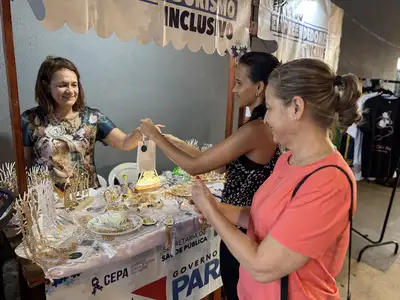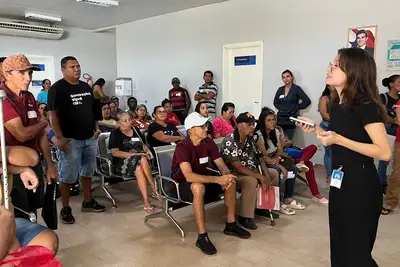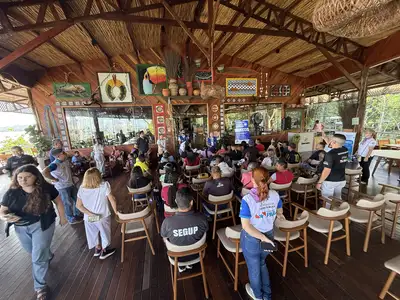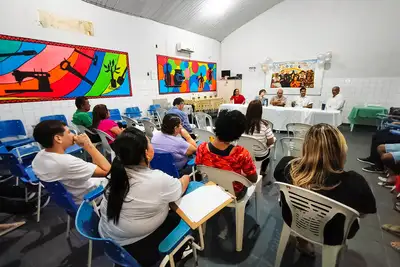Indigenous peoples of Pará reinforce their protagonism in the climate agenda during international event in Belém
Sepi works on the articulation of public policies focused on indigenous peoples, and its essential role is recognized at the Global Citizen Now Amazônia
During the international event Global Citizen Now Amazônia, held in Belém on the last 24th, the indigenous peoples of Pará reaffirmed their protagonism in global climate discussions. The Secretary of Indigenous Peoples of Pará (Sepi) was one of the highlights of the meeting by presenting the State's experience in building public policies aimed at indigenous peoples, who have defended and preserved the Amazon rainforest for centuries.
The governor of Pará, Helder Barbalho, also participated in the event and reinforced the strategic role of the Amazon in facing the climate crisis.
"We are building, from Belém, a new paradigm for sustainable development. The living forest needs to be valued more than the felled forest. This is what COP should deliver to our people," said the governor.
The state secretary of Indigenous Peoples, Puyr Tembé, participated in the panel "Climate Justice and Indigenous Peoples," where she brought to the audience the reality of those who care for the Amazon every day. She emphasized that environmental policies cannot ignore the knowledge and ways of life of indigenous peoples.
"We, indigenous peoples, have the ancestral responsibility to care for the forest, but we also want to actively participate in decisions about the future of the planet. It is time to stop talking about indigenous peoples and start talking with indigenous peoples," highlighted the secretary.
During the panel, the role of the private sector and banks in financing sustainable solutions in partnership with indigenous peoples was also discussed. Representatives from international agencies, such as UNEP and UNDP, and from the financial sector, such as BNP Paribas, advocated for the construction of mechanisms that respect indigenous ways of life and culture.
Secretary Puyr reinforced the importance that any climate investment must consider the priorities of the territories. “Funding must reach those who truly protect the forest. It is about saving the planet not only for indigenous peoples but for all humanity”, she said.
The panel also addressed the urgent reconstruction that the planet requires.
Sepi has been traversing the territories with the Indigenous Peoples Caravan towards COP30 as one of the most innovative strategies for popular mobilization in Pará.
The action is covering the eight ethnoregions of the state, providing information, promoting listening, and strengthening the knowledge of indigenous peoples about COP30, which will be held in Belém in November.
"We are going to the villages, with coordinated actions, listening, dialoguing, and strengthening our bases. Indigenous protagonism at COP30 necessarily involves strengthening the territories. And the Caravan is our instrument for that: to ensure that each people has access to information and that with their identity and demands, they are represented at the largest climate conference in the world,” explained Puyr Tembé.
Sepi's participation in Global Citizen Now Amazônia was also marked by the articulation with other indigenous leaders, civil society organizations, and public and international institutions. The recognition of the secretary as a fundamental instance in mediating between the State and indigenous peoples reaffirms Pará's commitment to building a model of environmentally sustainable, culturally respectful, and socially just development.
The Federation of Indigenous Peoples of the State of Pará (Fepipa) is a strategic partner of the Secretary of Indigenous Peoples (Sepi) and plays a fundamental role in mobilizing and strengthening indigenous action in the state. Representing various ethnoregions of Pará and encompassing more than 60 indigenous peoples, and acting in a coordinated manner on essential issues such as indigenous school education, territorial protection, rights defense, combating misinformation, and climate justice, Fepipa has strengthened the state and the indigenous agenda in debate spaces on climate change, promoting actions aimed at valuing traditional knowledge and preserving Amazonian biomes.
Its contribution alongside Sepi has been decisive in formulating inclusive and culturally respectful public policies, such as the State Policy on Indigenous School Education. Participation in this process reinforces the autonomy of indigenous peoples, ensuring that their voices are present in the definition, implementation, and oversight of public policies that directly impact their lives, territories, and ways of life, also valuing the role of indigenous women in environmental protagonism.
“Climate justice is only possible with the inclusion of women. They have a fundamental role in preserving the environment. It is through and by women that new generations, within our territories, receive the ancestral and millennial knowledge that keeps this forest standing. Public policies built from the voices of these women guarantee the rights of the peoples who inhabit these territories. This is not just a matter of justice, but of strategy: it is to recognize the role and knowledge that these women carry and transmit. They are the ones who keep the cycle of knowledge and protection of nature alive,” said Concita Sompré, indigenous leader and president of Fepipa.


